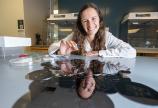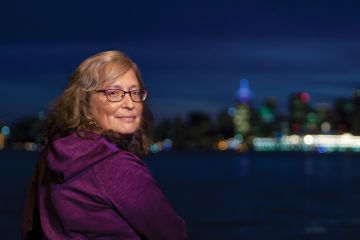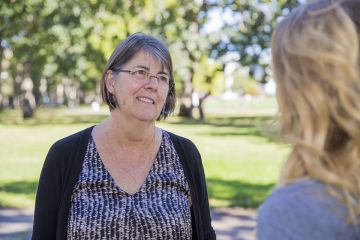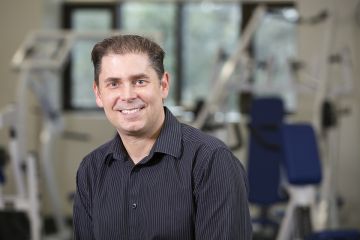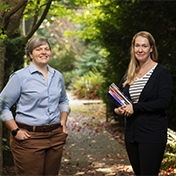Researcher drives COVID recovery through mentorship
- Kim Dias
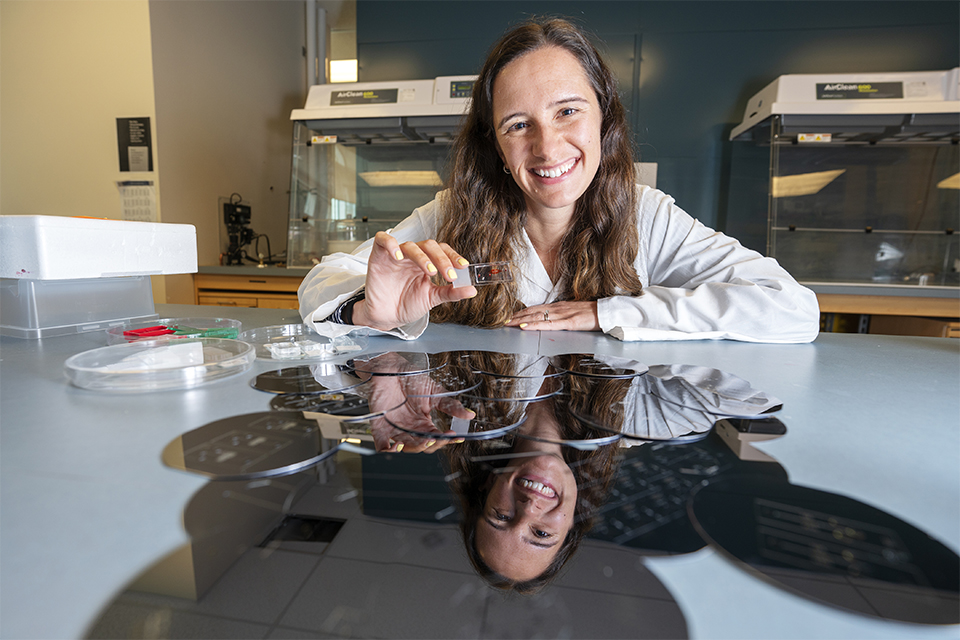
When the COVID-19 pandemic hit, the Creative Destruction Lab (CDL) responded by creating their Recovery program, designed to help science and tech companies in the face of the novel coronavirus. University of Victoria chemist Katherine Elvira mentored companies to help them find ways to contribute to recovery in Canada and the rest of the world.
As a mentor in the program’s public health and recovery stream, Elvira worked with other select mentors and experts in the field. International mentors—from angel investors, asset managers, large global companies to scientists—helped companies set objectives, develop their business and learn how to communicate their ideas.
Elvira describes the program as bridging the gap between academia and industry—a way to bring knowledge and expertise into the real world to help people and communities.
One of the silver linings of the pandemic is that there has been an opportunity for creativity.
—Katherine Elvira, UVic chemist
Some companies working with CDL, a non-profit with nine locations around the globe, have pivoted existing ideas to help recovery, while others have come up with brand new ideas, which Elvira said was particularly exciting to see. “That’s one of the things we were asking of these companies: be creative.”
The ability to take research out of the lab and into the wider world, where it can be used to solve problems, was also essential. “We want you because you can help the world recover from something no one expected,” says Elvira, referring to the companies.
Lending expertise
Elvira, who holds the Canada Research Chair in New Materials and Techniques for Health Applications, is an expert in microfluidics, a field at the intersection of chemistry, biomedical science and engineering. She creates tiny “lab-on-a-chip” devices. On plastic chips the size of a postage stamp, she builds pipes and valves, which allow her to manipulate and control tiny amounts of liquid. She uses these to build artificial cells and tissues for drug testing.
A lot of the companies in CDL Recovery are working with microfluidic technology, Elvira explains, and “anything miniaturized—for example, a COVID test—is microfluidics.” Because of her expertise in the area, she was an ideal mentor. Her own research is also currently being assessed for potential as a COVID-19 monitoring solution.
One company mentored by Elvira developed a paper-based test for the Zika virus and subsequently pivoted the technology to test for COVID-19. This company shows a lot of promise due to their previous success in testing for viruses, along with the fact that the test could be quick, affordable and accessible, adds Elvira.
More broadly, by designing “bespoke” or “designer” cells, Elvira hopes her research can speed up the drug discovery process, a process that generally takes 10-15 years and US$2.6 billion. Using her lab-on-a-chip devices, scientists will be able to find out how drugs interact with cells—and humans—much earlier in the discovery process.
Sharing knowledge
Mentoring is familiar terrain for Elvira, who in the fall was named a Michael Smith Foundation for Health Research (MSFHR) scholar. The award, supported by the Pacific Alzheimer Research Foundation, means Elvira will emphasize knowledge translation in her work to ensure the impact of her team’s research is understood beyond the university campus.
Elvira has also brought her CDL mentorship experience to UVic. Taking the lessons she learned about how industry and academia interact, Elvira can share this information with students to guide them in industry practices and potential jobs, helping them invest in their futures.
Working with the Creative Destruction Lab demonstrated the way collaboration between people from different backgrounds fosters creativity. It was eye-opening to see how the ideas we shared helped companies solve complex problems during the pandemic. It really showed me that recovery depends on us working together as an inclusive and equitable society.
—Katherine Elvira, UVic chemist
Photos
In this story
Keywords: Research Accelerator Fund, research, COVID, administrative, community, health, chemistry
People: Katherine Elvira

